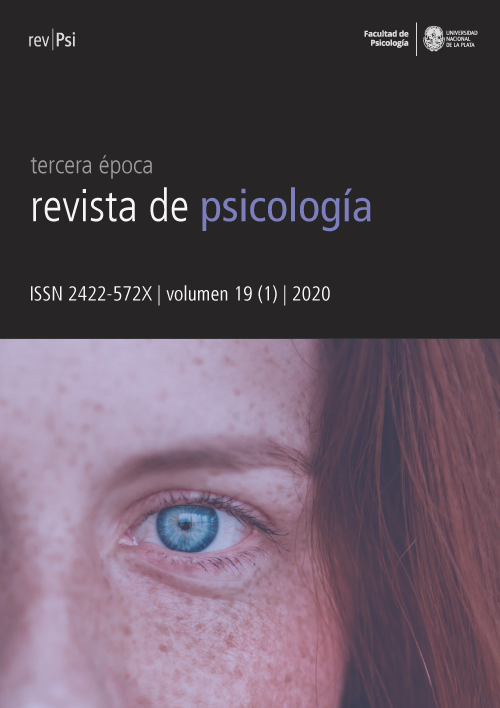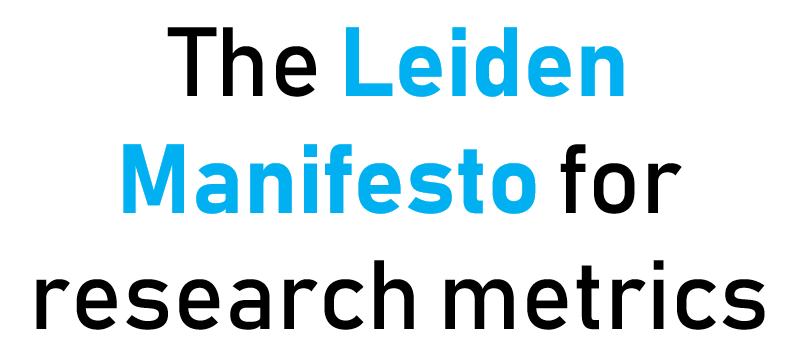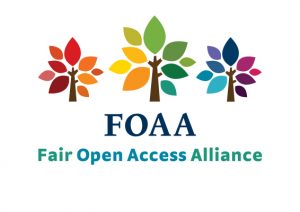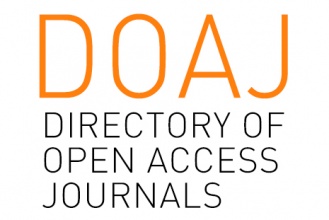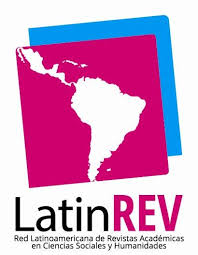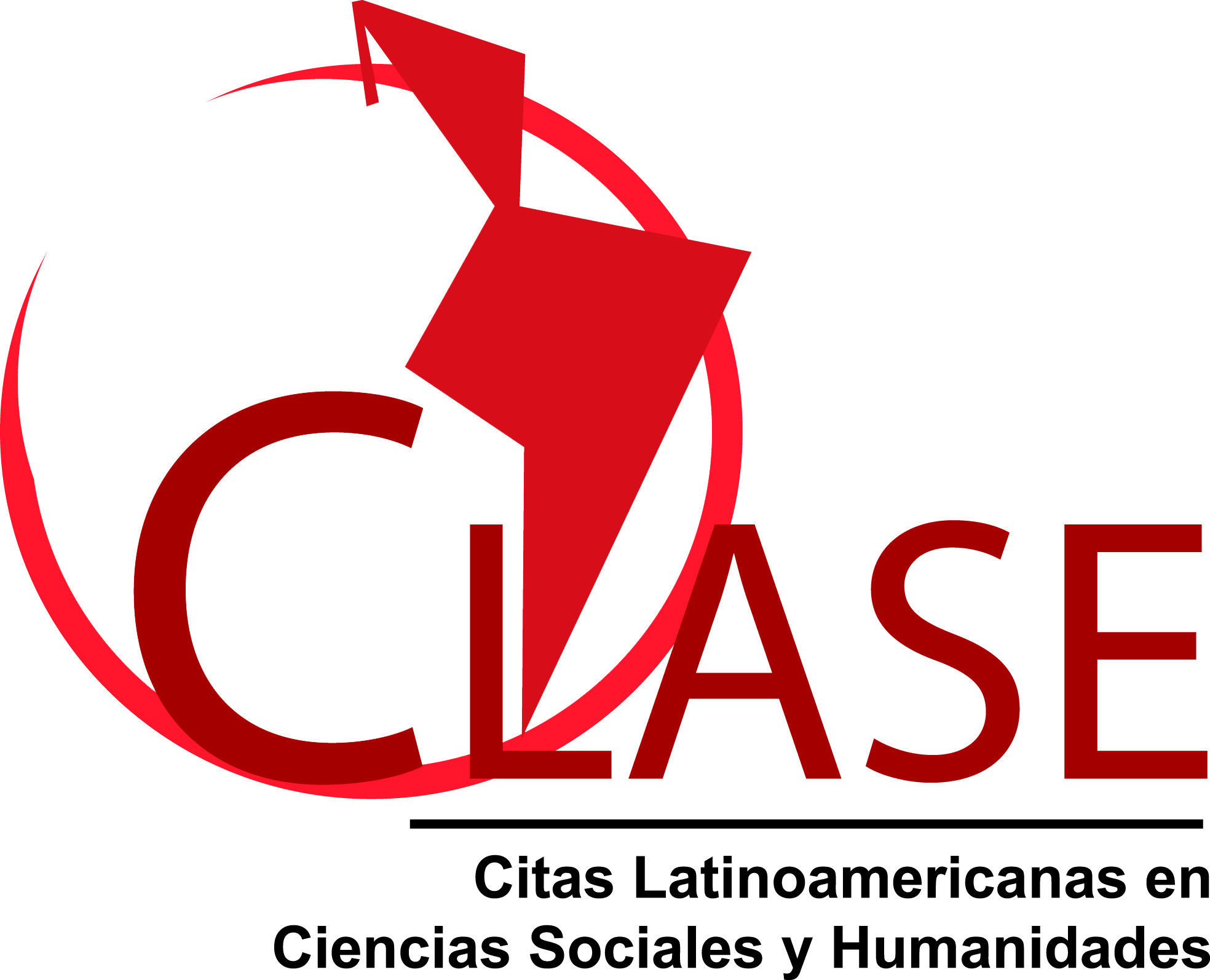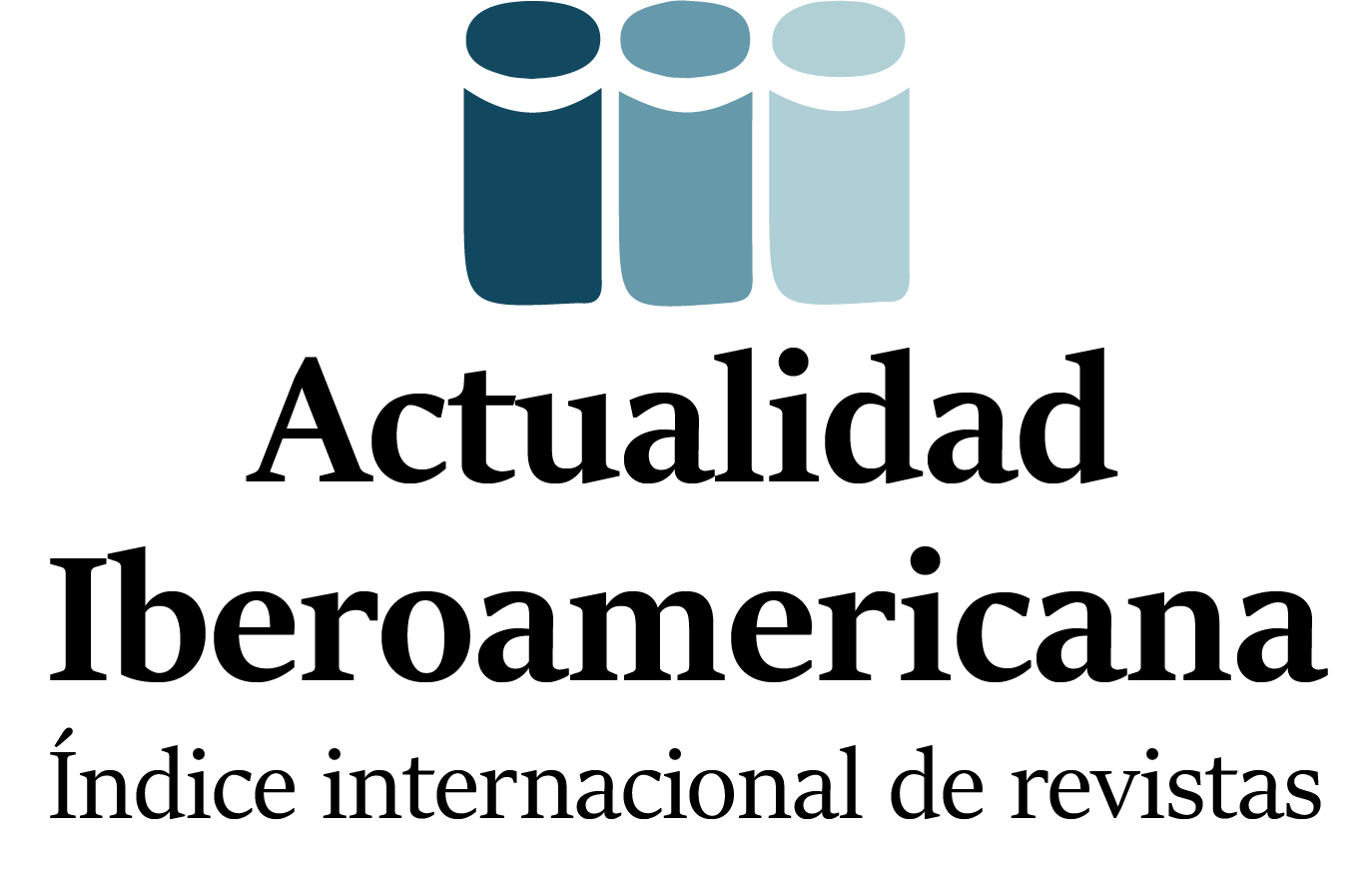Prediction of attitude toward people with HIV/AIDS and getting tested for HIV
DOI:
https://doi.org/10.24215/2422572Xe056Keywords:
attitude, homosexuality, authoritarism, students, MexicoAbstract
This research aims to test a model to predict the attitude toward PLWHA and getting tested for HIV. The Scale of Attitude toward, the Scale toward Lesbians and Gays, the scale of Right Wing Authoritarianism and questions about sociodemographic information, clinical data, sexual behaviour and relationships of friendship were applied to 202 Mexican medical students. A non-probability sampling was used. With a close data fit, an attitude of greater rejection towards PLWHA was predicted by heterosexual orientation, being man, and right-wing authoritarianism. The attitude toward homosexual persons had a substantive correlation with attitude toward PLWHA, but it was not a predictor. Getting tested for HIV was predicted to be a man, an attitude of acceptance towards PLWHA, having homosexual friends, and authoritarianism. It is concluded that the specified model of psychosocial perspective has a great explanatory capacity.
Downloads
Metrics
References
American Psychological Association. (2017). Ethical principles of psychologists and code of conduct. With the 2016 amendment to standard 3.04. Washington: APA
Asaolu, I. O., Gunn, J. K., Center, K. E. Koss, M. P., Iwelunmor, J. I. y Ehiri, J. E. (2016). Predictors of HIV testing among youth in Sub-Saharan Africa: A cross-sectional study. Plos One, 11(10), e0164052. https://doi.org/10.1371/journal.pone.0164052
Bishop, P. A. y Herron, R. L. (2015). Use and misuse of the Likert item responses and other ordinal measures. International Journal of Exercise Science, 8(3), 297-302.
Blackwell, C. W. y Kiehl, E. M. (2008). Homophobia in registered nurses: Impact on LGB youth. Journal of LGBT Youth, 5(4), 28-44. http://dx.doi.org/10.1080/19361650802222989
Boone, M. R., Stephanie H. Cook, S. H. y Wilson, P. A. (2016). Sexual identity and HIV status influence the relationship between internalized stigma and psychological distress in black gay and bisexual men. AIDS Care, 28(6), 764-770. https://doi.org/10.1080/09540121.2016.1164801
Burgess, D. J., Hardeman, R. R., Burke, S. E., Cunningham, B. A., Dovidio, J. F., Nelson, D. B., … van Ryn, M. (2019). Incoming medical students' political orientation affects outcomes related to care of marginalized groups: Results from the medical student CHANGES study. Journal of Health Politics, Policy and Law, 44(1), 113-146. https://doi.org/10.1215/03616878-7206755
Burke, S. E., Dovidio, J. F., Przedworski, J. M., Hardeman, R. R., Perry, S. P., Phelan, S. M., … van Ryn, M. (2015). Do contact and empathy mitigate bias against gay and lesbian people among heterosexual first-year medical students? A report from the medical student CHANGE study. Academic Medicine, 90(5), 645-651. https://doi.org/10.1097/ACM.0000000000000661
Byrne, B. (2016). Structural equation modelling with AMOS: Basic concepts, applications, and programming (3a ed.). New York: Routledge.
Cárdenas, M. y Parra, L. (2010). Adaptación y validación de la Versión Abreviada de la Escala de Autoritarismos de Derechas (RWA) en una muestra chilena. Revista de Psicología, 19(1), 61-79. https://doi.org/10.5354/0719-0581.2010.17098
Cui, J., Li, C., Yang, K. y Xu, W. (2018). Adaptive positive and negative runs test. Journal of Statistical Computation and Simulation, 88(7), 1314-1335. https://doi.org/10.1080/00949655.2018.1430802
Dahlui, M., Azahar, N., Bulgiba, A., Zaki, R., Oche, O. M., Adekunjo, F. O. y Chinna, K. (2015). HIV/AIDS related stigma and discrimination against PLWHA in Nigerian population. PloS One, 10(12), e0143749. https://doi.org/10.1371/journal.pone.0143749
Daniel-Ulloa, J., Ulibarri, M., Baquero, B., Sleeth, C., Harig, H. y Rhodes, S. D. (2016). Behavioral HIV prevention interventions among Latinas in the US: A systematic review of the evidence. Journal of Immigrant Minority Health, 18(6), 1498-1521. https://doi.org/10.1007/s10903-015-0283-0
De Harven, E. (2010). Human endogenous retroviruses and AIDS research: confusion, consensus, or science? Journal of American Physicians and Surgeons, 15(3), 69-74.
Duesberg, P. H., Mandrioli, D., McCormack, A., Nicholson, J. M., Rasnick, D., Fiala, C., Koehnlein, C., Bauer, H. H. y Ruggiero, M. (2011). AIDS since 1984: No evidence for a new, viral epidemic - not even in Africa. Italian Journal of Anatomy and Embryology, 116(2), 73-92.
Efron, B. y Hastie, T. (2016). Computer age statistics inference: algorithms, evidence and data science. New York: Cambridge University Press.
Emlet, C. A., Brennan, D. J., Brennenstuhl, S., Rueda, S., Hart, T. A. y Rourke, S. B. (2015). The impact of HIV-related stigma on older and younger adults living with HIV disease: does age matter? AIDS Care, 27(4), 520-528. https://doi.org/10.1080/09540121.2014.978734
Espinoza, S. C. y Novoa-Muñoz, F. (2018). Advantages of ordinal alpha versus Cronbach's alpha, illustrated using the WHO AUDIT test. Pan American Journal of Public Health, 42, e65. https://doi.org/10.26633/RPSP.2018.65
Farhat, D., Greene, E., Paige, M. Q., Koblin, B. A. y Frye, V. (2017). Knowledge, stereotyped beliefs and attitudes around HIV chemoprophylaxis in two high HIV prevalence neighborhoods in New York City. AIDS and Behavior, 21(5), 1247-1255. https://doi.org/10.1007/s10461-016-1426-6
Geter, A., Herron, A. R. y Sutton, M. Y. (2018). HIV-related stigma by healthcare providers in the United States: A systematic review. AIDS Patient Care and STDs, 32(10), 418-424. https://doi.org/10.1089/apc.2018.0114
Goodson, P. (2014). Questioning the HIV-AIDS hypothesis: 30 years of dissent. Frontiers in Public Health, 2, 154. https://doi.org/10.3389/fpubh.2014.00154
Herek, G. M. (1984). Attitudes toward lesbians and gay men: A factor analytic study. Journal of Homosexuality, 10(1-2), 39-51. https://doi.org/10.1300/J082v10n01_03
Herek, G. M. (1994). Assessing heterosexuals' attitudes toward lesbians and gay men: A review of empirical research with the ATLG scale. En B. Greene y G. M. Herek, (Eds.), Lesbian and gay psychology: Theory, research, and clinical applications (p. 206-228). Thousand Oaks: Sage Publications.
Herek, G. M. (1996). Why tell if you're not asked? Self-disclosure, intergroup contact, and heterosexuals' attitudes toward lesbians and gay men. En G. M. Herek, J. B. Jobe y R. M. Carney (Eds.), Worlds of desire. Out in force: Sexual orientation and the military (pp. 197-225). Chicago: University of Chicago Press.
Herek, G. M. (2009). Sexual stigma and sexual prejudice in the United States: A conceptual framework. En D. A. Hope (Ed.), Contemporary perspectives on lesbian, gay, and bisexual identities (pp. 65-111). New York: Springer.
Hodson, G., Turner, R. N. y Choma, B. L. (2016). Individual differences in intergroup contact propensity and prejudice reduction. En L. Vezzali y S. Stathi (Eds.), Intergroup contact theory: Recent developments and future directions (pp. 8-31). London: Routledge.
Huerga, H., Van Cutsem, G., Ben Farhat, J., Reid, M., Bouhenia, M., Maman, D., … Ellman, T. (2016). Who needs to be targeted for HIV testing and treatment in KwaZulu-Natal? Results from a population-based survey. Journal of Acquired Immune Deficiency Syndromes, 73(4), 411-418. https://doi.org/10.1097/QAI.0000000000001081
Jin, F., Prestage, G., Law, M., Kippax, S., Van de Ven, P., Rawsthorne, P., … Grulich, A. (2002). Predictors of recent HIV testing in homosexual men in Australia. HIV Medicine, 3(1), 271-276. https://doi.org/10.1046/j.1468-1293.2002.00121.x
Jöreskog, K. G., Olsson, U. H. y Wallentin, F. Y. (2016). Multivariate analysis with LISREL. Cham: Springer.
Kalichman, S. C. (2015). Commentary on “questioning the HIV-AIDS hypothesis: 30 years of dissent”. Frontiers in Public Health, 3, 1-2, 30. https://doi.org/10.3389/fpubh.2015.00030
Kikwasi, G. J., Lukwale, S. R. y Mwageni, E. A. (2017). A study of first year students’ attitude towards HIV and AIDS. Global Journal of Health Science, 9(7), 117-126. https://doi.org/10.5539/gjhs.v9n7p117
Knaak, S y Patten, S. A (2016). Grounded theory model for reducing stigma in health professionals in Canada. Acta Psychiatrica Scandinavica, 134(Suppl. 446), 53-62. https://doi.org/10.1111/acps.12612
Kyriazos, T. A. (2018). Applied psychometrics: sample size and sample power considerations in factor analysis (EFA, CFA) and SEM in general. Psychology, 9(8), 2207-2230. https://doi.org/10.4236/psych.2018.98126
Masoudnia, E. (2015). Public perceptions about HIV/AIDS and discriminatory attitudes toward people living with acquired immunodeficiency syndrome in Iran. Journal of Social Aspects of HIV/AIDS, 12(1), 116-122. https://doi.org/10.1080/17290376.2015.1123644
Moral, J. (2019). Revisión de los criterios para validez convergente estimada a través de la varianza media extraída. Psychologia, 13(2), 25-41.
Moral, J. y Valle, A. (2011a). Escala de Actitudes hacia Lesbianas y Hombres Homosexuales (ATLG) 2. Distribución y evidencias de validez. Revista Electrónica Nova Scientia, 4(7), 153-171. https://doi.org/10.21640/ns.v4i7.180
Moral, J. y Valle, A. (2011b). Escala de Actitudes hacia Lesbianas y Hombres Homosexuales en México 1. Estructura factorial y consistencia interna. Revista Electrónica Nova Scientia, 3(6), 139-157. https://doi.org/10.21640/ns.v3i6.191
Moral, J. y Valle, A. (2013). Contraste de una estructura trifactorial para escala de actitud hacia lesbianas y hombres homosexuales (ATLG). PSICUMEX, 3(2), 33-51.
Moral, J. y Valle, A. (2019). Concurrent validity of the internalized homonegativity scale in its versions composed of 14 and 16 items. En C. H. García (Ed.), Researches in Hispanic Psychology (Vol., 2, pp. 97-146). Hauppauge: Nova Science.
Moral, J. y Valle, A. (en prensa). Propiedades psicométricas de la Escala de Actitud hacia Personas que Viven con VIH/SIDA. Perspectivas Sociales, 21(2).
Mukherjee, S., McKinney, S. y Darrow, W. (2018). Stigma towards homosexuality and AIDS among students of a large Hispanic-serving university. Sexuality & Culture, 22(4), 1137-1153. https://doi.org/10.1007/s12119-018-9516-4
Neumann, R., Hülsenbeck, K. y Seibt, B. (2004). Attitudes towards people with AIDS and avoidance behavior: Automatic and reflective bases of behavior. Journal of Experimental Social Psychology, 40(4), 543-550. https://doi.org/10.1016/j.jesp.2003.10.006
Papadopulos, E., Turner, V. F., Page, B. A., Papadimitriou, J. y Causer, D. (2006). No proof HIV antibodies are caused by a retroviral infection. Emergency Medicine Australas, 18(3), 308-309. https://doi.org/10.1111/j.1742-6723.2006.00859.x
Prati, G., Zani, B., Pietrantoni, L., Scudiero, D., Perone, P., Cosmaro, L., … Oldrini, M. (2016). The role of knowing someone living with HIV/AIDS and HIV disclosure in the HIV stigma framework: a Bayesian mediation analysis. Quality & Quantity, 50(2), 637-651. https://doi.org/10.1007/s11135-015-0168-2
Rangel, Y. Y. (2015). Narrativas del riesgo respecto del VIH/sida en México. De letal a crónica y del estigma a los derechos humanos. Revista de El Colegio de San Luis, 5(9), 200-219. https://doi.org/10.21696/rcsl592015612
Reyes, M., Varas, N. y Martínez, M. T. (2015). Religion and HIV/AIDS stigma: Considerations for the nursing profession. The New School Psychology Bulletin, 12(1), 48-55.
Rickles, N. M., Furtek, K. J., Malladi, R., Ng, E. y Zhou, M. (2016). Pharmacy student attitudes and willingness to engage in care with people living with HIV/AIDS. American Journal of Pharmaceutical Education, 80(3), artículo 45. https://doi.org/10.5688/ajpe80345
Suominen, T., Laakkonen, L., Lioznov, D., Polukova, M., Nikolaenko, S., Lipiäinen, L., … Kylmä, J. (2015). Russian nursing students’ knowledge level and attitudes in the context of human immunodeficiency virus (HIV) – a descriptive study. BMC Nursing, 14(1), 1-12. https://doi.org/10.1186/s12912-014-0053-7
Tang, W., Zhuang, X., Zhao, H., Pang, C., He, Y., Liu, F., … He, D. (2016). HIV/AIDs-related stigma among medical students in Beijing, China. International Journal of Clinical and Experimental Medicine, 9(5), 8743-8748.
Ungaretti, J., Müller, M. y Etchezahar, E. (2016). El estudio psicológico del prejuicio: Aportes del autoritarismo y la dominancia social. Revista Internacional de Investigación en Ciencias Sociales, 12(1), 75-86. https://doi.org/10.18004/riics.2016.julio.75-86
Vaughn, A. A, Teeters, S. A., Sadler, M. S. y Cronan, S. B. (2017). Stereotypes, emotions, and behaviors toward lesbians, gay men, bisexual women, and bisexual men. Journal of Homosexuality, 64(13), 1890-1911. https://doi.org/10.1080/00918369.2016.1273718
Weiser, S. D., Heisler, M., Leiter, K., Percy-de Korte, F., Tlou, S., DeMonner, S., ... Bangsberg, D. R. (2006). Correction: Routine HIV testing in Botswana: A population-based study on attitudes, practices, and human rights concerns. PLOS Medicine, 3(10), e395. https://doi.org/10.1371/journal.pmed.0030395
Wesolowski, L., Chavez, P., Sullivan, P., Freeman, A, Sharma, A., Mustanski, B., … MacGowan, R. (2019). Distribution of HIV self-tests by HIV-positive men who have sex with men to social and sexual contacts. AIDS and Behavior, 23(4), 893-899. https://doi.org/10.1007/s10461-018-2277-0
Downloads
Published
How to Cite
Issue
Section
License
![]()
Authors who publish in this journal accept the following conditions:
- Authors retain the copyright and assign the right of first publication to the journal, with the work registered under a Creative Commons attribution license (CC-BY), which allows third parties to use what is published whenever they mention the authorship of the work and the first publication in this magazine.
- Authors can make other independent and additional contractual agreements for the non-exclusive distribution of the article published in this journal (e.g., include it in an institutional repository or publish it in a book) as long as they clearly indicate that the work was published for the first time in this magazine.
- Authors are allowed and encouraged to publish their work on the Internet (e.g., on institutional or personal webpages) before and during the review and publication process, as it can lead to productive exchanges and greater and faster dissemination of published work (see The Effect of Open Access ).

